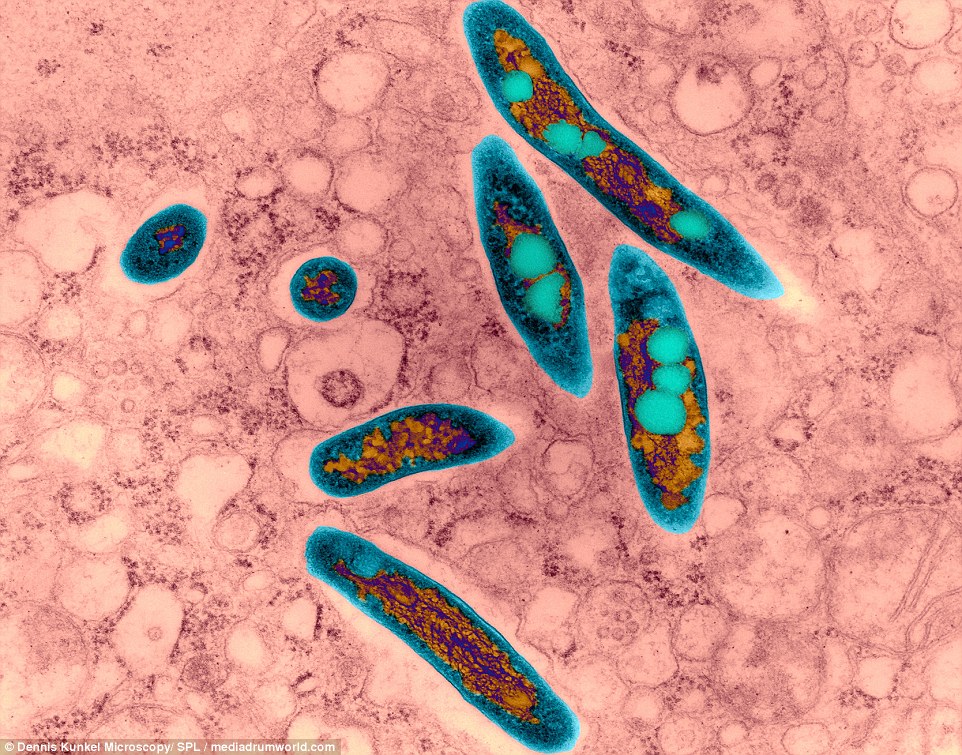The dangerous bacteria lurking in hand dryers — Experiment
An experiment has revealed that some organisms may be in dryers at public toilets, gas stations and movie theatres Therefore, drying your hands by shaking them really could be the best way to keep them clean, an investigation by a citizen scientist has suggested. To research whether hand dryers put bacteria back onto your hands, […]

An experiment has revealed that some organisms may be in dryers at public toilets, gas stations and movie theatres
Therefore, drying your hands by shaking them really could be the best way to keep them clean, an investigation by a citizen scientist has suggested.
To research whether hand dryers put bacteria back onto your hands, Dallin Lewis, 33, held petri dishes under the machines at a public restroom, gas station, movie theatre and shop in Provo, Utah, for several seconds.
After incubating them for three days the dishes were found to be crawling with bacteria and fungi — which appeared in white, yellow and black smudges. The public bathroom dryer appeared to be the most contaminated.
But a separate petri dish which was waved through the air in the bathroom before being incubated to mimic when someone shakes their hands after washing them to get the water off, stayed completely clear.
Lewis, who carried out the tests near his home in Provo, Utah, for his TikTok channel said the results were ‘far worse’ than what he had been expecting. ‘I’ve done many similar bacteria growth tests on a variety of surfaces — phones and gas pumps are probably some of the worst — but the hand dryer was so bad!’, he said.
It comes after a British expert warned yesterday that not drying your hands after going to the bathroom could be even worse than not washing them at all. Dr David Webber, a microbiologist with 50 years’ experience, even said people that didn’t wash their hands properly could be described as social menaces.
Lewis decided to investigate how much bacteria is blasted out by hand dryers after finding out one based near his home was riddled with the micro-organisms.
Experts say it is critical to dry your hands after washing, because many types of bacteria like to grow in warm damp places.
E.coli — a bacteria that can cause food poisoning — thrives on damp surfaces, including hands. Previous research has suggested 85 percent of microbes spread by people contaminating surfaces occur when hands are still moist.
But there is a multitude of different ways to dry them — including with a paper towel, hand dryers or shaking them through the air.
To help iron out the differences Webber, a microbiologist with 50 years’ experience including at the University College of Swansea in Wales, has now ranked eight of the world’s most popular hand drying methods.
At the top comes ‘the surgeon’ — running your fingers through every nook and cranny under a hand dryer. This will help make sure hands are completely moisture-free and clear of bacteria.
Perhaps obviously, the so-called ‘drip-dry dodger’ — who doesn’t bother to dry their hands at all — ranks at the polar opposite end of the scale.
Dr Webber, who is working alongside Airdri, a company that produces hand dryers, said: ‘Bacteria thrives on damp surfaces, hands included.
“The pandemic has focused attention on the correct way to wash our hands with published guidance from the WHO, CDC, and NHS.
“However, there has been no such guidance on the correct procedures to dry hands which are equally important.’
He added: “Not drying hands properly could be less hygienic than not washing them at all.
“Research demonstrated that the transfer of bacteria was directly related to the time and effectiveness of hand drying, the transfer of bacteria progressively decreased as water was removed.”
Dr Webber, who is working alongside Airdri, a company that produces hand dryers, said: ‘Bacteria thrives on damp surfaces, hands included.
“The pandemic has focused attention on the correct way to wash our hands with published guidance from the WHO, CDC, and NHS.
“However, there has been no such guidance on the correct procedures to dry hands which are equally important.”
He added: “Not drying hands properly could be less hygienic than not washing them at all.
“Research demonstrated that the transfer of bacteria was directly related to the time and effectiveness of hand drying, the transfer of bacteria progressively decreased as the water was removed.”
Likewise, wiping off the last of the moisture on your trousers or skirt after drying can pick up any bacteria on your clothing, defeating the purpose of washing hands.
Mail Online
